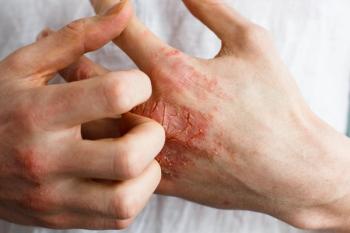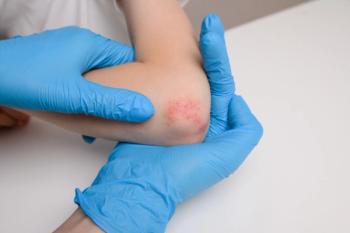
What's New in Alopecia Areata Management
Natasha A. Mesinkovska, MD, PhD, shares what’s new in alopecia areata management.
In her session, “What’s New and Hot in Alopecia Areata Management,” Natasha A. Mesinkovska, MD, PhD, vice chair of clinical research in the department of dermatology at the University of California, Irvine, shares the latest pearls in alopecia areata management.1 Mesinkovska is very involved in alopecia areata research, as she was the chief scientific officer of the National Alopecia Areata Foundation from 2015 to 2022 and is currently part of their clinical research advisory council.
Mesinkovska’s session covered hot topics in alopecia areata management, including vaccines and viruses, JAK inhibitors, dupilumab, minoxidil, and what is coming down the pipeline.
Mesinkovska began by discussing the correlation between alopecia areata and COVID-19, as well as the COVID-19 vaccine and boosters. In some examples, many of Mesinkovska’s patients experienced alopecia areata totalis after mild cases of COVID-19. Additionally, in a few patient examples, patients who previously had alopecia areata, but were stable or making progress, began to lose their hair again after the COVID-19 vaccine. Mesinkovska stressed that she does not believe this should be a reason not to receive a COVID-19 vaccine or booster, but that clinicians should consider the effects and talk with their patients.
Regarding JAK inhibitors, clinicians have a new JAK to choose from, baricitinib (Olumiant; Eli Lily) for the treatment of alopecia areata in adults. Current alopecia areata clinical trials include deuruxolitinibCTP 543, ritlecitinib, and delgotcitinib. Mesinkovska cautioned clinicians to be aware of black box warnings of JAK inhibitors and to discuss adverse events with patients.
Dupilumab also shows promising potential for alopecia areata treatment. Dupilumab is an IL-4 and IL-13 antagonist currently approved to treat atopic dermatitis in children and adults.
Minoxidil is still a viable option for patients with alopecia areata, especially for those hesitant to start JAK inhibitors, or for pediatric patients. Possible adverse effects of minoxidil include hypertrichosis, postural hypotension, and lower limb edema.
Finally, an alopecia areata drug coming down the pipeline is etrasimod, a sphingosine 1-phosphate receptor modulator. It is an oral pill taken once daily, and has previous indications of ulcerative colitis, Crohn’s disease, and eosinophilic esophagitis.
Reference
- Mesinkovska A. What’s new and hot in alopecia areata management. Presented at the 2023 Winter Clinical Hawaii Dermatology Conference; January 13-18, 2023; Kohala Coast, Hawaii.
Newsletter
Pharmacy practice is always changing. Stay ahead of the curve with the Drug Topics newsletter and get the latest drug information, industry trends, and patient care tips.























